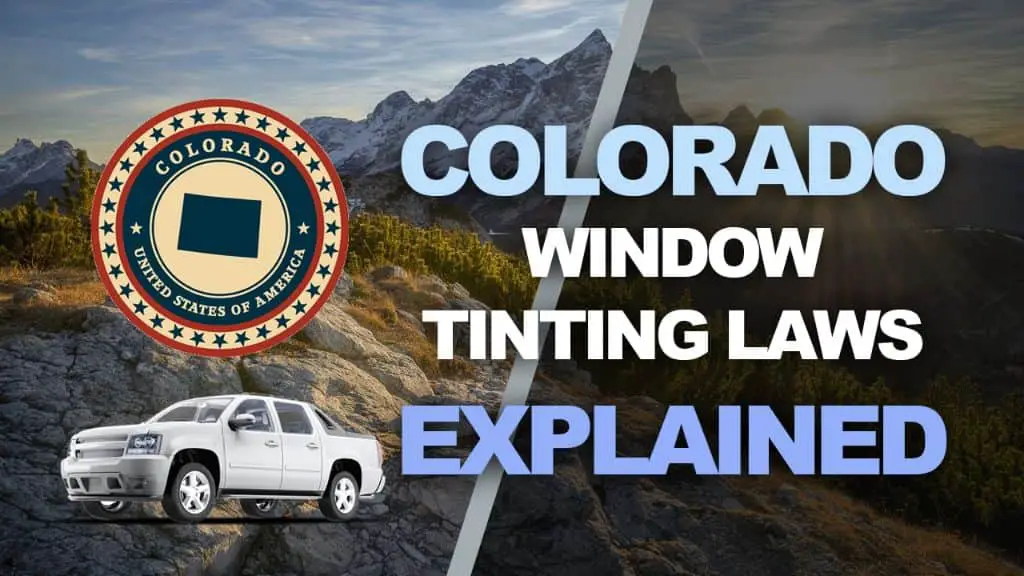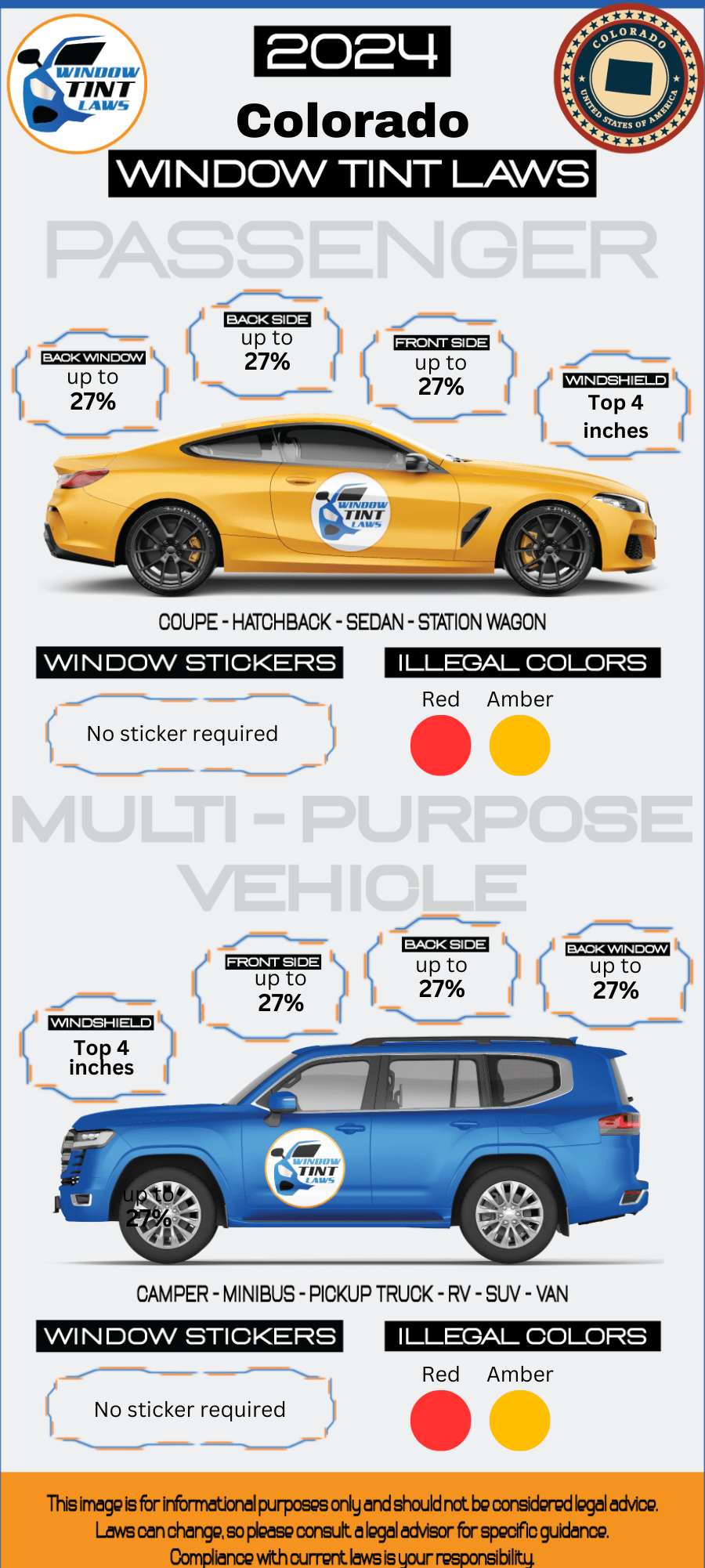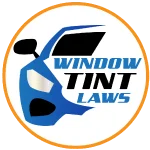

Article Created by Ryan Pietrzak
Last updated on February 2, 2024Colorado Tint Laws – 2024 Updated Legal Tint Limit
Please note that Colorado Tint Laws Regulation can change daily and may be interpreted differently at the city or county level. We recommend verifying this information with your local DMV or law enforcement agencies. We have manually fact-checked this content using official state resources. Colorado enacted tinting laws in 1995. If any information provided is incorrect or outdated, please contact us so we can make the necessary corrections. Thank you.
2024 Colorado Tint Laws – Legal Tint Limit For Passenger Vehicles
- Front Windshield: Non-reflective 70% VLT tint is allowed on the top 4 inches of the windshield. The front windshield must allow at least 70% light transmittance. Only a small top strip can be tinted.
- Front seat side windows: up to 27% tint darkness allowed. Front side windows must allow at least 27% light transmittance, restricting tint to 27% or lighter.
- Back seat side windows: up to 27% tint darkness allowed
- Rear window: up to 27% tint darkness allowed
2024 Colorado Tint Laws – Legal Tint Limit For Multi-Purpose Vehicles
- Front Windshield: Non-reflective 70% VLT tint is allowed on the top 4 inches of the windshield.
- Front seat side windows: up to 27% tint darkness allowed
- Back seat side windows: up to 27% tint darkness allowed
- Rear window: up to 27% tint darkness allowed

- Medical exemptions: Colorado tint laws permit darker tints on front side windows with a doctor’s note
- Colorado tint laws prohibit metallic or reflective tint on any of the windows
- Colorado tint laws are statewide with no additional local regulations
- Violating Colorado tint laws can result in a class B traffic infraction with fines up to $100.
What does VLT Mean according to Colorado Tint Laws?
- Window tint film’s light transmission is measured as VLT (Visible Light Transmission) and each state has its own legal limits for VLT on car windows.
- A HIGHER VLT means that more light is allowed to pass through the window tint film.
- Example: a 75% tint will allow 75% of the light to pass through whereas a 5% tint will only allow 5% of the light to pass through, making the 5% tint a much darker film.
- Colorado window tint laws has specific VLT limits for Passenger Vehicles and Multi-Purpose Vehicles.
FAQ’s Regarding Colorado Tint Laws and Colorado Legal Tint Limit
What is the darkest legal tint in Colorado?
In Colorado, the darkest legal tint for front side windows is typically 27% VLT (Visible Light Transmission), meaning that at least 27% of light must pass through the window. However, it’s essential to verify the specific tinting laws and regulations with local authorities or the Colorado Department of Revenue
Are police exempt from window tint laws in Colorado?
In Colorado, law enforcement vehicles are generally not exempt from window tint laws. They are typically subject to the same tinting regulations as civilian vehicles. However, specific exemptions or allowances may apply in certain cases or under certain circumstances
How do I get a tint waiver in Colorado?
To obtain a tint waiver in Colorado, you must have a documented medical condition that requires special window tinting. First, obtain a medical certificate from a licensed physician, then complete an application provided by the Colorado Department of Revenue, Division of Motor Vehicles (DMV), and submit it along with the medical certificate to the DMV for review and approval.
How much is a tint ticket in Colorado?
The cost of a tint ticket in Colorado can vary depending on the specific violation and location. Fines for window tint violations typically range from around $50 to $150 or more. The exact amount may depend on factors such as the darkness of the tint and whether it’s a first-time or repeat offense
Can you get pulled over for tint in Colorado?
Yes, you can get pulled over for window tint violations in Colorado. Law enforcement officers in Colorado have the authority to stop and ticket vehicles with window tint that does not comply with the state’s regulations. If your vehicle’s window tint is too dark or does not meet the legal requirements, you may be subject to a traffic stop and potentially receive a citation.
How to get a Tint Exemption in Colorado
The State of Colorado does not currently allow for window tint medical exemptions that would allow you to tint your windows darker for medical purposes. If you would like to file a petition with the State in order to appeal this and request that they change the law we suggest you contact the Colorado State Representative directly.
